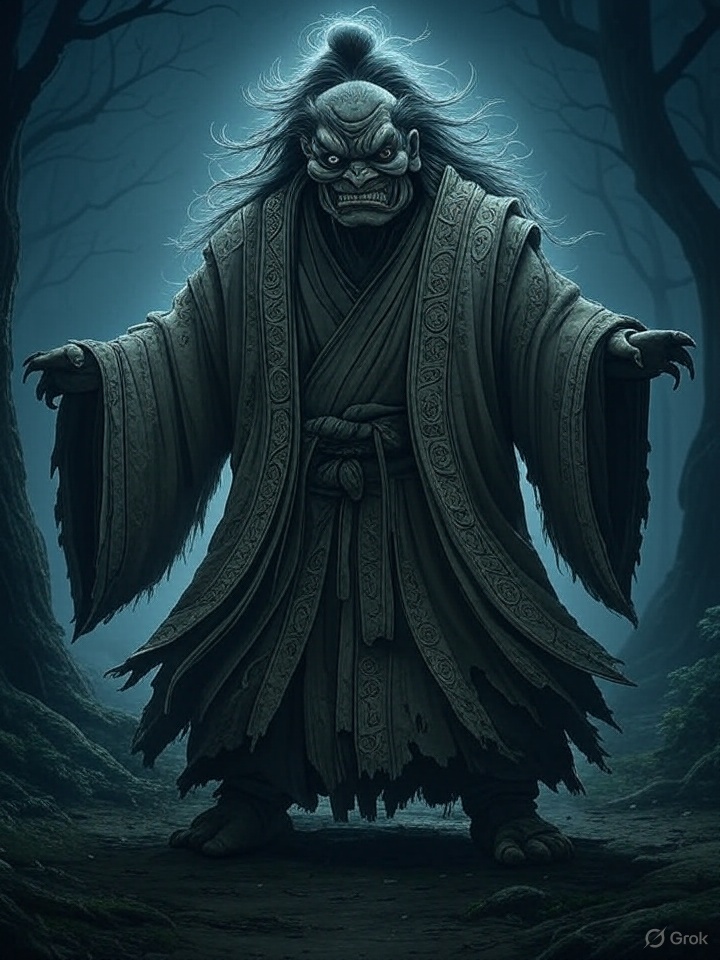Name Meaning
Overview
Yakubyō-gami (厄病神) translates to "god of plague" or "spirit of misfortune." These spirits are associated with bringing calamity.
Origin
- Stems from ancient Shinto and Buddhist beliefs.
- Feared in times of epidemic or disaster.
- Often invoked in purification rituals to be driven away.
Appearance
- May appear as shadowy figures or disguised as travelers.
- Sometimes depicted as aged, haggard men or women.
- Occasionally seen with scrolls listing names of their next victims.
Behavior & Myths
- Believed to spread disease and curses when entering homes.
- Often expelled during rituals involving dolls or salt.
- Offerings, festivals, and charms are used to ward them off.
Symbolism
- Personification of pandemics and widespread misfortune.
- Reflects human fear of unseen threats and the importance of spiritual hygiene.
- Serves as a reminder to maintain rituals and cleanliness.

